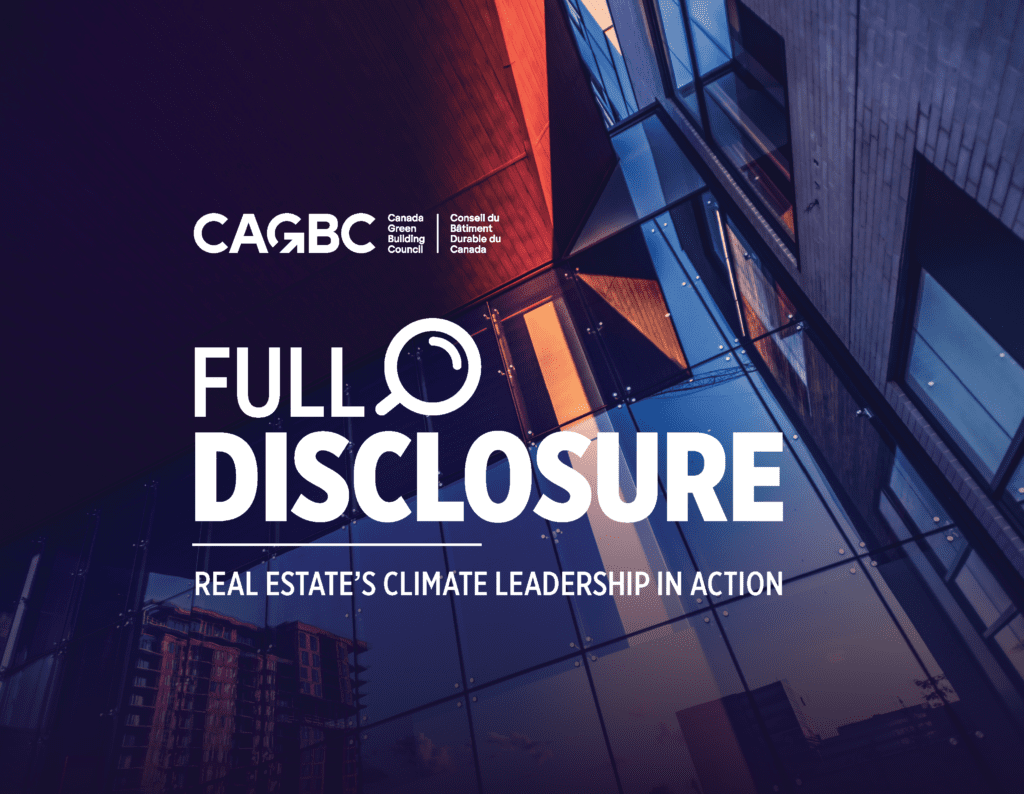Full Disclosure: Real Estate’s Climate Leadership in action
In the absence of consistent requirements and support for building performance data disclosure and benchmarking, owners and operators, tenants, and policy-makers lack a clear picture of buildings’ overall energy use and GHG emissions.
Since 2017, CAGBC’s Disclosure Challenge has called on real-estate leaders to publicly disclose all their buildings’ available energy, greenhouse gas emissions, and water data.
This report is an update to the previous Full Disclosure report. It adds data from new buildings and insights into 2020, a remarkable year of disruption for the real estate sector. The examination of the collective data and conversations with the participants provide the basis for this reports’ key learnings and recommendations, which are summarized here:
The real estate sector is ready and willing to share building performance data. Participants in the Challenge demonstrated there is an appetite for data transparency and willing sustainability leaders. Their involvement proves disclosure and data-sharing is possible for both public and private real estate managers anywhere in Canada.
Barriers still exist, and more so for certain building types. Industrial, warehouse and retail buildings have more challenges collecting whole-building data than multi-use residential buildings and offices and may need additional supports to meet their needs.
Data drives emissions reductions. The Challenge shows that data transparency and benchmarking can help guide energy and emissions reductions, and more broadly, can aid in the development of effective policies and programs.
More jurisdictions are exploring whole-building data approaches. Ontario already mandates energy and water reporting for some buildings, with cities like Edmonton, Winnipeg, Ottawa, and Montreal, and the Province of Nova Scotia exploring voluntary approaches.

